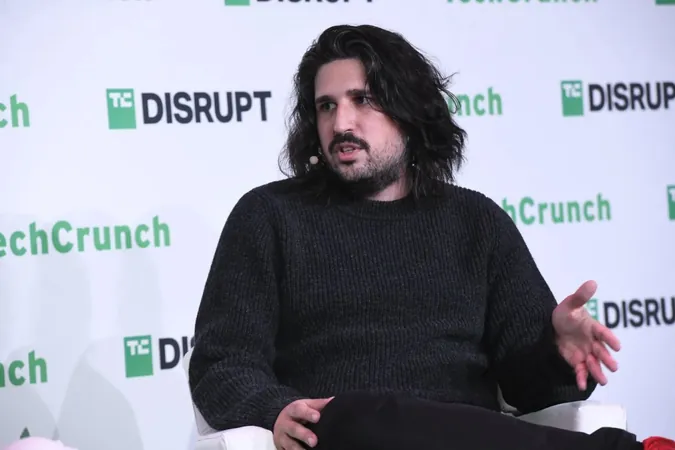
Runway Unveils API for Revolutionary Video-Generating AI Models – What This Means for Developers!
2024-09-16
Author: Chun
Introduction
In a significant move for the AI landscape, Runway—a key player among startups focusing on video-generating technology—has unveiled an API designed for developers and organizations looking to integrate its generative AI capabilities into various platforms, apps, and services. However, access is currently limited, with a waitlist for those eager to explore this cutting-edge technology.
API Features and Pricing
At present, the Runway API features a single model, known as Gen-3 Alpha Turbo, which boasts faster performance compared to the more robust Gen-3 Alpha model. Developers can choose between two pricing plans: Build (targeting individuals and smaller teams) and Enterprise. Each credit costs one cent, with a second of video costing five credits, making this technology accessible yet financially manageable for entry-level users. Runway has highlighted that well-known industry players, including the marketing group Omnicom, are already utilizing the API.
Usage Requirements
Interestingly, Runway has implemented stringent requirements for the usage of its API. Any application that employs this technology must prominently display a "Powered by Runway" banner, linking back to Runway’s website. This ensures transparency about the technology’s origins for end-users, a stipulation the company believes is vital for adhering to their usage terms.
Market Position and Competition
Backed by prominent investors such as Salesforce, Google, and Nvidia, Runway was recently valued at a staggering $1.5 billion. Nevertheless, it faces fierce competition from corporate giants like OpenAI, Google, and Adobe in the video-generation arena. OpenAI is scheduled to debut its highly anticipated video generation model, Sora, this fall, while nimble startups like Luma Labs are continuously innovating to refine their technologies.
Luma Labs Response
Luma Labs, in a possibly timed response to Runway's announcement, also launched its own API for video generation, which stands out by offering users control over virtual cameras in AI-generated scenes—features that surpass those currently available through Runway.
Profitability and Legal Considerations
As Runway ventures into the API space, it positions itself as a pioneer among AI vendors offering video generation solutions through an API. While this development could steer the company toward profitability and help mitigate the high costs associated with model training and deployment, it remains ensnared in legal uncertainties surrounding generative AI technology.
Legal Challenges
The legal landscape is complex, particularly regarding the training data that shapes these AI models. Like many companies, Runway has been reticent about sharing specific details on its training datasets, likely due to competitive considerations. However, concerns arise from allegations that Runway may have trained its models on copyrighted materials without proper permission. A July report from 404 Media flagged a spreadsheet revealing connections to high-profile YouTube creators and established content entities, including Netflix and Disney.
Fair Use Doctrine and Ethical Considerations
Although it is unclear whether Runway actually utilized videos from the sources listed, the implications of potentially infringing copyright are evident. The generative AI sector is rife with such challenges, with several other companies, including OpenAI and Nvidia, facing similar scrutiny over the sourcing of their training materials. Many generative AI companies, believing they are protected under the fair use doctrine, have asserted this in legal contexts, though this remains contested.
Industry Response
Conversely, some vendors pursue a more ethical stance to model training, such as Adobe’s reported strategy of compensating artists for their content contributions to train their Firefly models. Importantly, Luma has taken a proactive approach, pledging to defend and indemnify API customers against claims related to intellectual property violations—an assurance that Runway has yet to offer, although they have indicated plans to collaborate with stock media source Getty to create more legally compliant products.
Future of Generative AI in Entertainment
As the legal disputes regarding copyright training data unfold, one thing is certain: generative AI video tools are set to dramatically disrupt the film and television industry. A study conducted by the Animation Guild revealed alarming statistics, indicating that 75% of film producers adopting AI have reduced workforce levels. It is estimated that by 2026, generative AI could affect more than 100,000 jobs in the U.S. entertainment sector.
Conclusion
Keep an eye on Runway's developments—they are just getting started, and the implications could change how we produce and consume video content forever!




 Brasil (PT)
Brasil (PT)
 Canada (EN)
Canada (EN)
 Chile (ES)
Chile (ES)
 Česko (CS)
Česko (CS)
 대한민국 (KO)
대한민국 (KO)
 España (ES)
España (ES)
 France (FR)
France (FR)
 Hong Kong (EN)
Hong Kong (EN)
 Italia (IT)
Italia (IT)
 日本 (JA)
日本 (JA)
 Magyarország (HU)
Magyarország (HU)
 Norge (NO)
Norge (NO)
 Polska (PL)
Polska (PL)
 Schweiz (DE)
Schweiz (DE)
 Singapore (EN)
Singapore (EN)
 Sverige (SV)
Sverige (SV)
 Suomi (FI)
Suomi (FI)
 Türkiye (TR)
Türkiye (TR)
 الإمارات العربية المتحدة (AR)
الإمارات العربية المتحدة (AR)